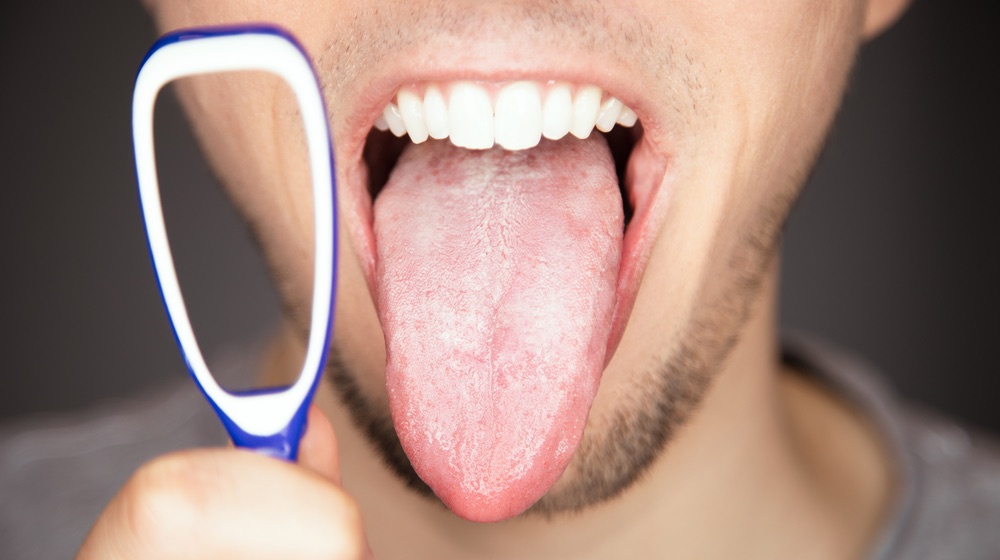Enlarged Prostate | Causes, Symptoms, Treatment & Prevention
An enlarged prostate is common among older men and can be quite troublesome. It could affect daily life and hamper ordinary tasks.
Fortunately, science offers plenty of answers as well as modern solutions to this old (age) problem.
Continue reading to find out how to spot symptoms of an enlarged prostate and options you can discuss with your doctor to manage it.
In this article:
- What Is an Enlarged Prostate?
- What Causes an Enlarged Prostate?
- What Are the Symptoms of an Enlarged Prostate?
- What Oral Medication Are Available for BPH?
- What Minimally Invasive Treatments Are Available for BPH?
- The Crux of an Enlarged Prostate
RELATED: Starting Over at 50: How To Deal With 10 Major Changes In Men
What You Need to Know About Enlarged Prostates
What Is an Enlarged Prostate?

An enlarged prostate is an age-related condition common amongst men aged 50 years or older. Scientists and those in the medical field typically refer to it as benign prostatic hyperplasia (BPH).
The likelihood and symptoms of BPH increase with age. Approximately 50% of men aged 50 years and older experience BPH. The chances of BPH may also increase in men that:
- have a family history of BPH
- are aged 40 years and up
- do not exercise regularly
- suffer from type 2 diabetes
- have heart conditions
- are obese
Is it Prostatitis or BPH?
If you've Googled an enlarged prostate, you may also have come across two other male-related health conditions.
Prostatitis is an inflamed prostate, possibly due to trauma to the prostate or via bacterial infection. It is different from an enlarged prostate or another term you may have heard of – benign prostatic hyperplasia (BPH).
Prostatitis is more common aged 50 years or younger. On the other hand, BPH is an age-related condition most common in men 50 years and older.
Phases of Growth
The prostate grows in two phases.
Phase one occurs during puberty, where the prostate grows double in size.
The second phase occurs when a man hits 25 years old. From this point, the prostate continues to grow. So BPH occurs during the second phase.
What Causes an Enlarged Prostate?

Men that are castrated before puberty may not experience BPH. And as mentioned earlier, it occurs in older men. So this lets us know that it involves the testicles and aging.
It's not clear what causes an enlarged prostate or BPH, but scientists have two theories.
Theory 1: Estrogen
Men carry testosterone (male hormone) and trace amounts of estrogen (female hormone) in their bodies. Researchers believe that as men age, they testosterone levels. And this new balance between hormone levels is what causes prostate cell growth.
Theory 2: DHT
Some research shows that dihydrotestosterone (DHT) levels may promote prostate cell growth. Even when testosterone levels decrease, DHT may continue to accumulate in the prostate.
Without a clear cause and understanding of the mechanisms of BPH, scientists do not know yet how to prevent BPH.
However, there are treatments and medications that you may take to help manage BPH and its symptoms. For men with a high risk of BPH, there are multiple options you may discuss with your physician to help manage and minimize symptoms as early as in your 40s. This could help make BPH more manageable in your later years.
RELATED: Prostate Massage | Everything You Need To Know
What Are the Symptoms of an Enlarged Prostate?

The prostate is located under the bladder and beside the rectum. Because it sits adjacent to the bladder, many of the symptoms are related to the lower urinary tract system (LUTS). You may also pinpoint markers of BPH early on by observing differences when you urinate.
- nocturia (urinating multiple times during bedtime)
- smelly urine
- urine with an unusual color
- Poor bladder control or urinary urgency
- urinating more than eight times a day
- weak/poor urine stream
- trouble urinating in the beginning
- leaking even after urinating
- urinary incontinence
- urinary retention (inability to fully empty the bladder)
- pain during urination or ejaculation
Symptoms like urinary retention or a blocked urethra may not necessarily indicate BPH. An oral medication, drinking alcohol, low temperatures, and even inactivity may cause urination issues.
Avoid self-diagnosing and -medicating and consult your physician if you think you may have BPH. If your physician believes you may have BPH, he or she may refer you to a urologist.
What Oral Medication Are Available for BPH?

If your urologist positively diagnoses you for BPH, there are multiple treatments available.
But first, your doctor may prescribe your oral medication.
- 5-alpha reductase (5AR) inhibitors could prevent 5AR from converting testosterone into DHT, which has long been suspected to cause BPH.
- Alpha-blockers may help relax the muscles in the bladder and prostate, relieving symptoms in the LUTS.
- Phosphodiesterase-5 inhibitors (PDE5), which include Viagra, are vasodilating drugs that are used to treat erectile dysfunction (ED). These inhibitors may also help relax LUTS smooth muscles.
Your urologist may prescribe you one or a combination of these drugs. It will depend on your conditions and circumstances.
These treatments could help alleviate some symptoms of BPH, but could not cure it completely.
What Minimally Invasive Treatments Are Available for BPH?

If you do not respond to oral medication, you may be viable for treatments less invasive than surgery.
Treatments available may not require you to go under the knife. Instead, a urologist will insert a special instrument through your urethra to reach the enlarged prostate tissue.
- Transurethral microwave therapy is when the enlarged prostate tissue is destroyed via heat.
- Water-induced thermotherapy is when a balloon is inserted through a catheter in the urethra to the enlarged tissue. The heated water then passes through the catheter and into the balloon, which destroys the enlarged tissue.
- Transurethral needle ablation is when a needle inserted through a cystoscope in the urethra. Needles are then sent to the end of the cystoscope and send radiofrequency energy which destroys select areas in the enlarged tissue.
- Transurethral electrovaporization is when a resectoscope emits a current to vaporize the enlarged prostate tissue.
- High-intensity focused ultrasound is when ultrasound probes heat up and destroy the enlarged prostate tissue.
- In a prostatic stent insertion, a urologist will a temporary or permanent stent which will open up the urethra.
However, you may undergo surgery if:
- complications arise
- your conditions are severe
- you have tried medication and minimally invasive treatments but are ineffective
In surgery, your urologist may decide to remove part or the entire prostate.
The Crux of an Enlarged Prostate

There's no known way yet to prevent an enlarged prostate. As early as your 40s, you may discuss with your physician or urologist symptoms you believe may point to an enlarged prostate. Your doctor may also recommend lifestyle changes that may help you better manage your symptoms.
If you are positively diagnosed with BPH, know that there are many treatments readily available. Whether your doctor prescribes oral medication or a less invasive procedure, discuss with your urologist all possible side effects. It could help manage your expectations and prepare for what comes next.
Enlarged prostate or BPH is not cancer, but it could have serious complications and could affect your quality of life. And it is this impact that usually brings us to the doctor.
Your doctor, ultimately, will be your first line of defense when dealing with BPH. It is, however, widely recommended that men in their 40s begin regular visits with their physicians. Age-related conditions including BPH may begin to arise.
And as the old adage goes, prevention (whenever possible) is better than cure.
Do you find this article helpful? Share your thoughts in the comment box below.
UP NEXT:
- Chronic Balanitis Treatment: Can Circumcision Help?
- Penis Exercises to Pump Up Your Sex Life
- Home Gym Essentials: How To Build Your Own Gym At Home
Calling all crafting Health Buffs! If you’ve got the gift of keeping healthy and sharing this knowledge through writing, Click here if you want to write for us.
Please stay connected with us on Facebook, Twitter, Instagram, and Pinterest, and make sure to join our community of healthy living and minded people here.
Trending
Get Updates
SIGN UP FOR OUR NEWSLETTER TODAY

Tongue Color | 7 Scary Tongue Color Meanings

10 Erectile Dysfunction Exercises to Keep Your Manhood Healthy

Related

Tongue Color | 7 Scary Tongue Color Meanings

